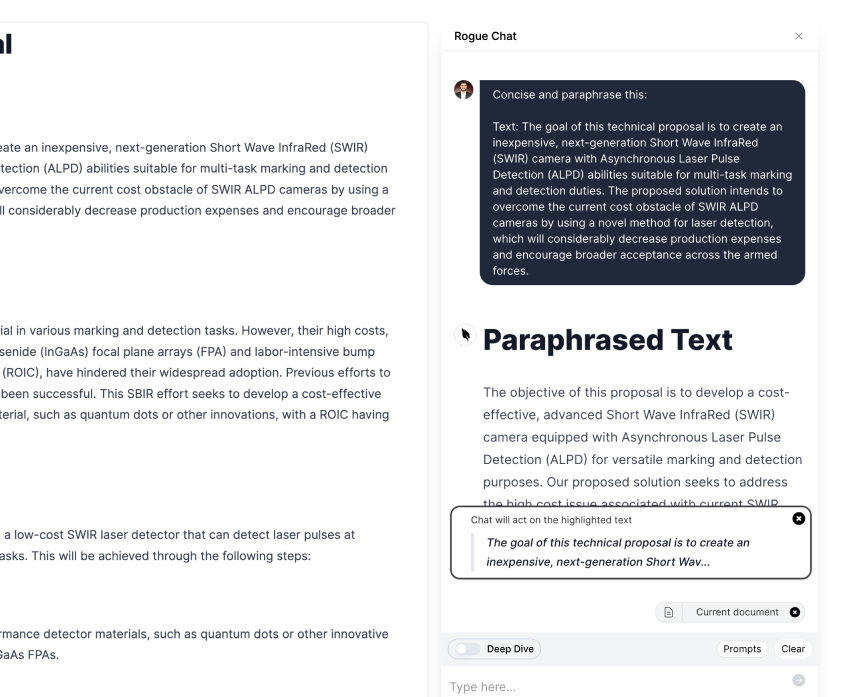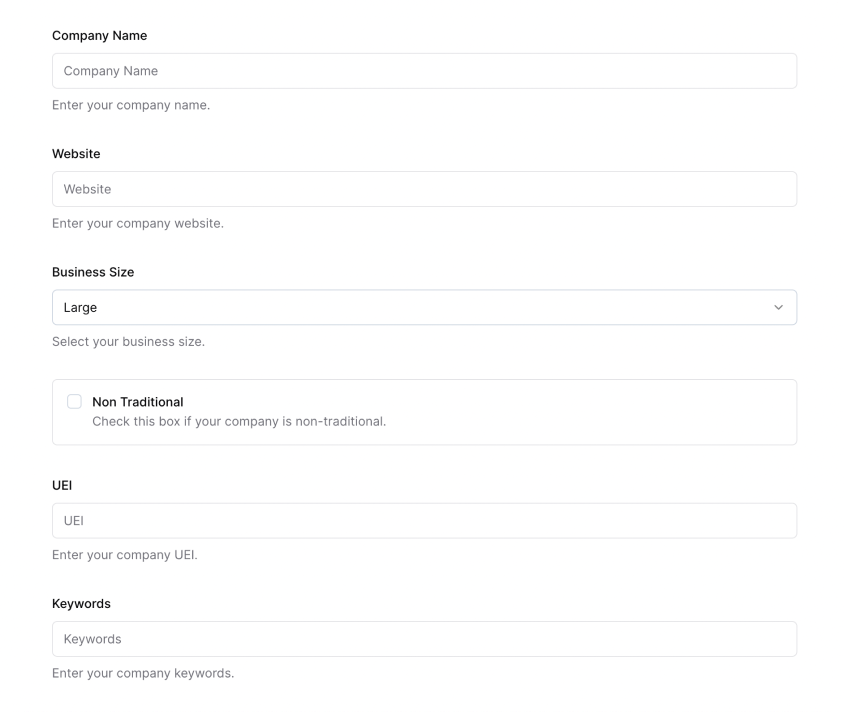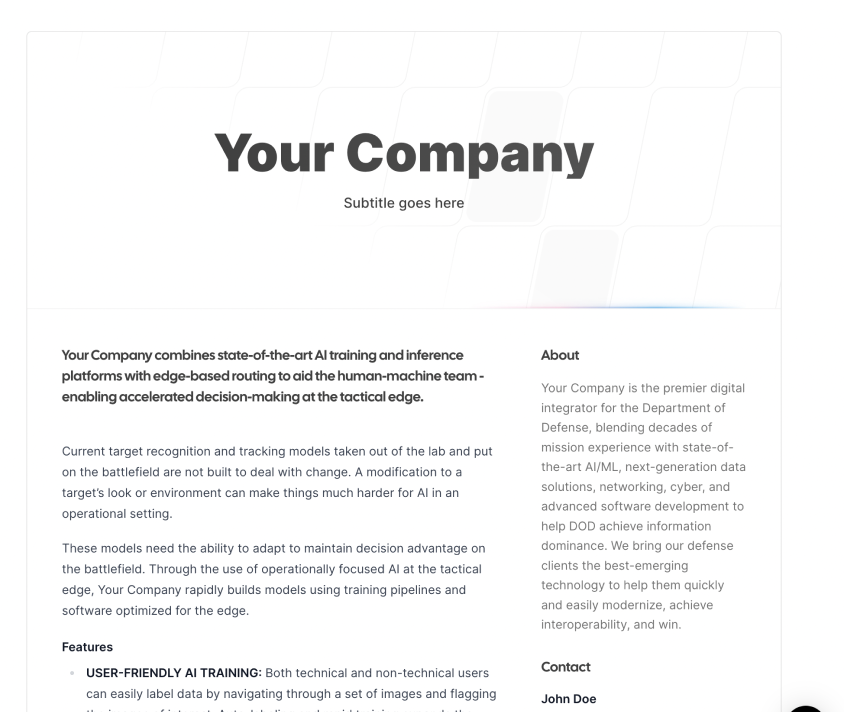
The Future of Federal Contracting: How Artificial Intelligence Could Shape MAC IDIQs and FAR Part 15
The rapid development of artificial intelligence (AI) technology has the potential to significantly impact the way federal contracts are awarded and managed. As contracting officers, understanding these potential macro effects is essential for ensuring efficiency and securing the best value for your agency. Lets explore the ways AI could drive more contracts towards Multiple Award Contract (MAC) and Indefinite Award Indefinite Quantity (IDIQ) contracts (FAR Part 16.5), or alternatively, enable a greater portion of negotiated contracts (FAR Part 15).
Table of contents
Background
The rapid development of artificial intelligence (AI) technology has the potential to significantly impact the way federal contracts are awarded and managed. As contracting officers, understanding these potential macro effects is essential for ensuring efficiency and securing the best value for your agency. Lets explore the ways AI could drive more contracts towards Multiple Award Contract (MAC) and Indefinite Award Indefinite Quantity (IDIQ) contracts (FAR Part 16.5), or alternatively, enable a greater portion of negotiated contracts (FAR Part 15).
AI and the Shift Towards MAC IDIQs
Over recent years, there has been a notable increase in the use of MAC IDIQs, particularly with a push towards Best In Class MACs (MIC MACs). A major reason for this trend is that these contract vehicles make the procurement process easier and much more efficient for contracting officers, allowing them to manage more contracts. This is especially significant as the number of contracting officers is decreasing while the federal budget continues to grow.
However, one downside to this shift towards MAC IDIQs is that they often present challenges for small businesses attempting to compete in the market. The requirements of many MAC IDIQs, such as OASIS+, are typically too demanding for smaller companies, making it difficult for them to compete or win contracts. As a result, the number of small businesses in the federal market is also declining.
AI's Potential to Streamline MAC IDIQ Processes
Many MAC IDIQs have fairly standardized solicitation and proposal formats, making them ideal for AI implementation. By using AI to write solicitations, triage proposals, and draft contracts, the technology could drastically accelerate and simplify the process for contracting officers. This could lead to an even greater shift towards MAC IDIQs as the effort to solicit and award contracts is reduced even further through the power of AI.
AI and the Open Market: Supporting FAR Part 15 Contracting
Alternatively, AI could be used to enable more FAR Part 15 contracts to be solicited in the open market, where small businesses can bid on and win them. By leveraging AI and digital workflows, FAR Part 15 contracting could become as easy and streamlined as FAR Part 16.5 contracting. If there were no time, effort, or resource-saving benefits in using a FAR Part 16.4 contract, there would be no reason to do so.
In fact, if the net cost in time, effort, and money is the same for both types of contracting, FAR Part 15 would be preferred as it allows for a broader industrial base and greater competition. This increased competition ultimately provides better value to government agencies.
Leverage AI to Support Small Business
The federal government has taken several visible actions to help small businesses thrive in the federal market, such as restructuring the PTACs into APEX accelerators and making the Minority Business Development Agency permanent, which is now the only Federal agency devoted to helping minority-owned businesses find private lenders, exporters, and public and private buyers. Leveraging the power of AI to expand the portion of the federal market that is accessible to these small businesses is an available step that the administration may want to consider.
The Choice for Contracting Officers: Efficiency vs. Competition
Contracting officers must weigh the pros and cons of AI-driven MAC IDIQs and FAR Part 15 contracts. On one hand, AI has the potential to streamline MAC IDIQ processes, making them even more appealing for contracting officers. On the other hand, AI could also level the playing field between FAR Part 16.5 and FAR Part 15 contracts, enabling more negotiated contracts in the open market.
Ultimately, AI could support both types of contracting, allowing contracting officers to leverage the technology to increase efficiency and secure the best value for their agencies.
One Last Thing...
The potential impact of AI on federal contracting is significant, with the technology poised to shape the future of both MAC IDIQs and FAR Part 15 contracts. As contracting officers, staying informed about these developments and adapting to these changes will be crucial for maintaining efficiency and securing the best value for your agency.
It's time for contracting officers to embrace AI and its potential benefits in their work. By doing so, you can ensure that your agency is well-prepared for the future of federal contracting and continues to deliver exceptional value in an ever-changing landscape.
Sign up for Rogue today!
Get started with Rogue and experience the best proposal writing tool in the industry.



